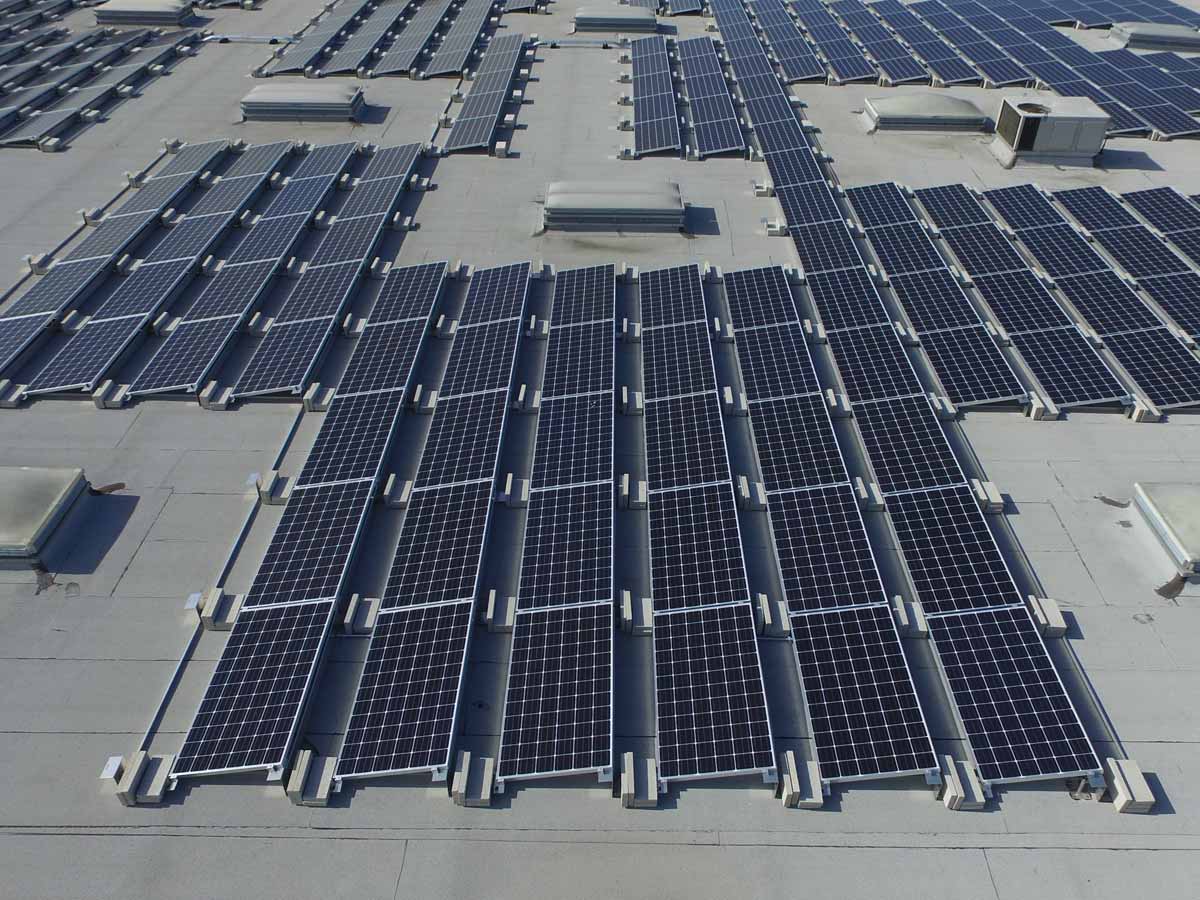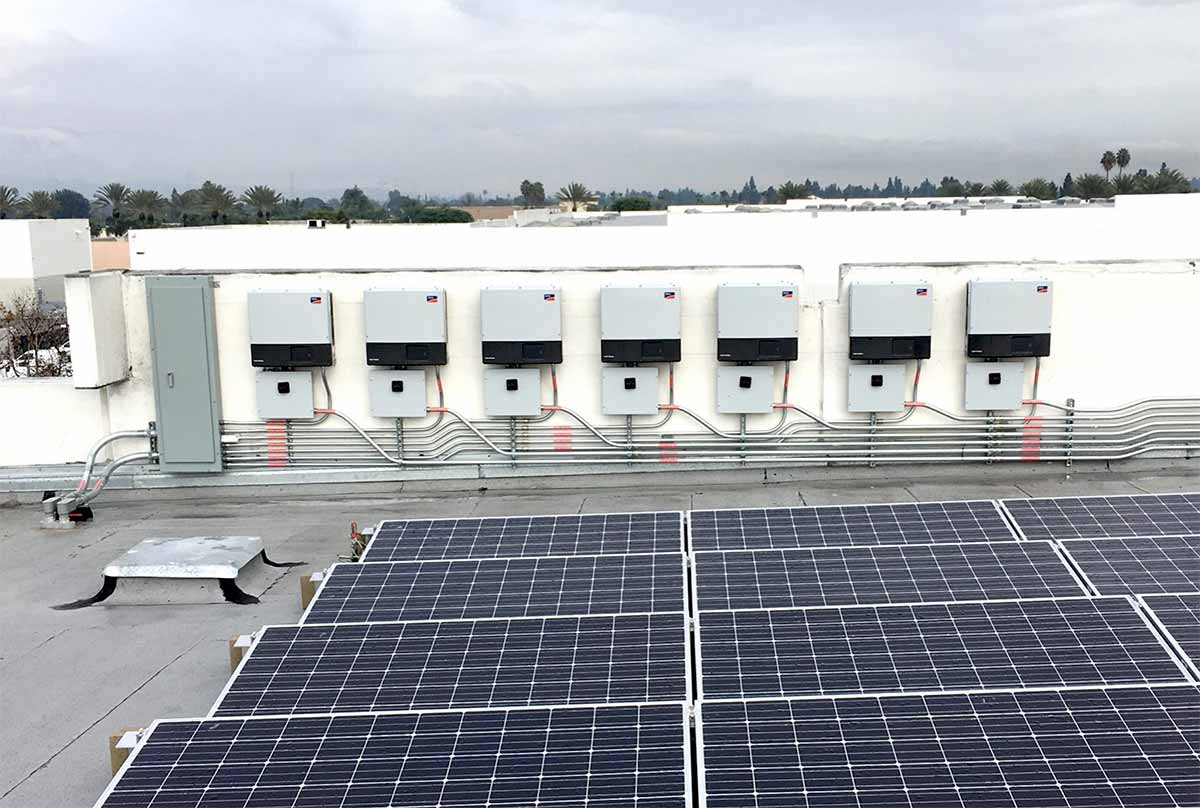Commercial Solar Energy Financing In Lake Forest & Orange County, CA
Work With A Commercial Solar Company Today
Barnes Solar Despite the rise of lenders in the residential solar industry, solar energy financing options for commercial solar panel installations remain few and far between. There are many reasons to why that is (businesses can be difficult to underwrite, lengthy permitting and approval processes can make managing cash flow and project size makes securing capital a tricky proposition), but the fact remains that even though accessible, project-specific financing would be a huge boon for the commercial solar industry, securing financing and favorable terms is not an easy process for businesses. In fact, in many cases, business owners will have better luck working with their bank to get a business line of credit.

Solar financing options for business owners
According to data from Greentech Media, solar leases and power purchase agreements (PPA) comprised almost 75% of all financed solar systems as recently as 2014. That number has been on declining ever since. Thanks in large part to specialized solar finance companies, credit unions and other niche lenders, solar loans are now the preferred method for financing a solar system and own nearly 70% of the market share today.
Loan
In residential solar, ownership is on the rise and shows no signs of slowing down. The idea of being able to take advantage of tax incentives and also own your electricity is appealing to homeowners who understand the impact ownership will have on the ROI of the project. However, in commercial solar, straightforward loans are still relatively new to the scene…
Learn moreLoan
In residential solar, ownership is on the rise and shows no signs of slowing down. The idea of being able to take advantage of tax incentives and also own your electricity is appealing to homeowners who understand the impact ownership will have on the ROI of the project. However, with commercial solar panel installations, straightforward loans are still relatively new to the scene primarily because high project and the cost of solar panels and related equipment proved to be a sizable barrier to entry for most potential lenders. But as costs continue to decline and lucrative tax incentives remain, more and more business owners are seriously considering the benefits of commercial solar energy financing options.
To be clear, a loan is not the best option for every business. If your business is a non-profit or does not have a substantial tax appetite, then a loan makes considerably less sense. But for businesses that are paying a healthy chunk in taxes every year, the ability to use not only the federal tax credit but also accelerated federal and state depreciation schedules makes owning the sense a much more sensible choice.
The downside to commercial solar energy loans is that, in many instances, these loans carry interest rates of anywhere from 6-10% and the business obviously owns the system, which means they are responsible for maintenance or any issues that arise. However, every solar system comes with a 25-year manufacturer’s warranty on the solar panels and Barnes Solar upgrades the standard 12-year inverter warranty to 25 years for free. Also, Barnes Solar offers a 25-year labor and workmanship warranty on all of its installations, so maintenance should be a secondary concern for a business owner and the tax benefits usually outweigh the potential hazards of ownership.
Operating Lease
The operating lease remains the financing vehicle of choice for some business owners considering a commercial solar panel installation and there are obvious benefits to the option. With terms generally ranging from 3-10 years, the operating lease makes perfect sense for businesses that don’t have a large tax appetite…
Learn moreOperating Lease
The operating lease remains the financing vehicle of choice for some business owners considering a commercial solar panel installation and there are obvious benefits to the option. With terms generally ranging from 3-10 years, the operating lease makes perfect sense for businesses that don’t have a large tax appetite but still want to own the solar energy system in the long run. The business owner is able to spend very little upfront and the costs are kept off balance sheet. They are also able to benefit from a stable monthly payment and still reap the benefits of ownership at the end of the term.
The downside of the operating lease is that the tax benefits go to the company or entity that owns the system, which means business owners are potentially forfeiting the chance to see 50% or more of the total solar energy system cost come back to them in the form of tax incentives. Lessors usually pass most, if not all, of those savings on to the lessee in the form of low payments (part of the reason why a lease makes sense in the first place), but the return on investment is usually not quite as attractive as it would be if the business owner was realizing the cost savings themselves.
Of course because the business doesn’t own the solar energy system, at least during the term of the lease, the lessor is responsible for maintenance and upkeep, a potential benefit that business owners would be wise to consider.
Barnes Solar offers operating lease options and other commercial solar energy financing options through Barnes Capital, its subsidiary. If you are interested in leasing options for your business through Barnes Capital, please do not hesitate to reach out.
PPA/Pre-Paid PPA
PPA stands for power purchase agreement and it is the most popular commercial financing option for solar installations. It is both similar and very different from a lease. Like a lease, the PPA is a third-party ownership option, which means it usually works best for businesses without much of a tax appetite…
Learn morePPA/Pre-Paid PPA
PPA stands for power purchase agreement and it is the most popular commercial financing option for solar panel installations. It is both similar and very different from a lease. Like a lease, the PPA is a third-party ownership option, which means it usually works best for businesses without much of a tax appetite. Also like a lease, the entity offering the PPA pays for the solar panels and solar panel installation and owns the system for the length of the term (10-25 years). But unlike a lease, where the business pays to lease the system from the lessor, in a PPA, the business is agreeing to purchase the solar energy or power generated by the system at a rate that is almost always lower than the utility price.
The PPA is appealing because business owners do not need to worry about potential maintenance or performance issues related to the solar panel installations. However, business owners do not get the opportunity to ever own the system in a PPA agreement.
The prepaid PPA is a bit different. It works almost exactly like it sounds. The business pays for the entire cost upfront, the lessor owns the system long enough to take advantage of the tax incentives and then sells the system back to the business owner for a drastically reduced price. This allows the business to reap the long-term benefits of ownership, but it also means that the business owner will need to find other means of financing the upfront payment or they will need to make a large cash payment upfront, which obviously requires liquidity.

We understand that each business is different and that there isn’t just one financing options that fits all, so if you have any questions or interest in Barnes Solar’s business solar financing options but let us know and we can work with you to find something that fits your needs.

